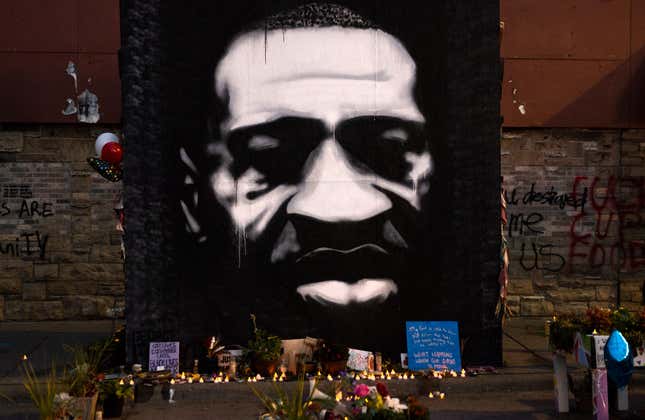
On Wednesday, the House passed a comprehensive police reform bill named in honor of George Floyd, the 46-year-old Black man whose brutal death after being restrained under the knee of a Minneapolis cop helped spur a nationwide movement against racism and unjust police practices in 2o2o.
In a clear indication of where the two major parties stand on this major issue, the Washington Post reports that the George Floyd Justice in Policing Act was passed by House Democrats 220 to 212, with all but one Republican voting for it.
That Republican, Rep. Lance Gooden of Texas, clarified on Twitter on Wednesday night that he accidentally hit the wrong button while voting and “of course wouldn’t support the radical left’s” act.
The supposed radical provisions in the bill? It would ban police chokeholds and carotid holds, prohibit no-knock warrants (like the kind that enabled police to enter 26-year-old Breonna Taylor’s home last year and shoot her dead), prohibit racial and religious profiling, mandate body-cameras and dashboard cameras for police and create a national database to track police misconduct.
Crucially, it would also eliminate qualified immunity—the legal doctrine that has served as a buttress against police accountability by making it virtually impossible for members of the public to sue individual officers in court. Senate Republicans have previously challenged the proposed reforms to qualified immunity.
But these are all common-sense, necessary and overdue changes to protect the rights of everyone in what is supposed to be the “land of the free.” Interestingly, the George Floyd Justice in Policing Act passed the House on the anniversary of Los Angeles police’s brutal beating of Rodney King in 1991, which would not be the last time the police’s cultural and systemic antipathy to the rights—and lives—of Black Americans would be made evident on camera.
NPR reports that Rep. Karen Bass (D-Calif.), who sponsored and introduced the bill, said in a statement after its passing, “Never again should an unarmed individual be murdered or brutalized by someone who is supposed to serve and protect them. Never again should the world be subject to witnessing what we saw happen to George Floyd in the streets in Minnesota.”
“I look forward to working with my colleagues in the Senate and across the aisle to ensure that substantive police reform arrives at the President’s desk,” she also said.
President Biden has welcomed the measure and said he looks forward to signing a landmark police reform bill into law after it passes Congress.
“To make our communities safer, we must begin by rebuilding trust between law enforcement and the people they are entrusted to serve and protect. We cannot rebuild that trust if we do not hold police officers accountable for abuses of power and tackle systemic misconduct—and systemic racism—in police departments,” the White House said on Wednesday.
But the hurdle will be getting the bill passed through the Senate—where Democrats have a razor-thin majority because of Vice President Kamala Harris’ deciding vote—given that Republican lawmakers deem the bill as anti-police.
Meanwhile, the family of George Floyd—whose brother Philonise Floyd had testified in support of the legislation—were gratified by the House’s passage of the act named in his honor, according to a statement from their attorneys.

